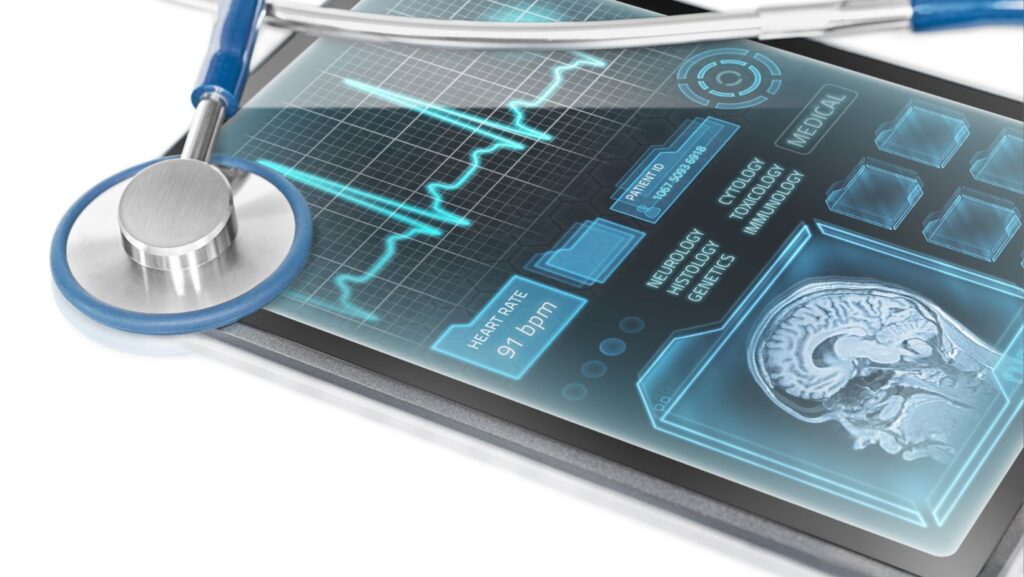Mobile applications are fundamentally reshaping the healthcare landscape, revolutionizing how patients receive care, how medical professionals deliver services, and how health information is managed.
This technological transformation is making healthcare more accessible, efficient, and patient-centered than ever before.
Telemedicine apps have emerged as a game-changing development, particularly highlighted by recent global health challenges.
These applications enable patients to consult with healthcare providers remotely, eliminating geographical barriers and reducing the burden on traditional healthcare facilities.
Virtual consultations have become increasingly sophisticated, incorporating high-quality video conferencing, secure file sharing, and integrated electronic health records.
Patient tracking apps have changed how we monitor health conditions.
These apps work with devices you can wear to keep an eye on things like heart rate and blood sugar levels, while also helping people stay on top of their medications. The real breakthrough is how doctors can now see this information as it happens, rather than waiting for their patients to come in for a check-up. This has made a real difference for people living with ongoing health issues – someone with diabetes can share their daily readings with their doctor, while heart patients can have their vitals checked regularly without constant hospital visits.
The mental health field has really opened up thanks to these new apps.
People who might have hesitated to walk into a therapist’s office can now start their mental health journey more privately. The apps offer everything from simple meditation guides to full therapy sessions, and they’re helping reduce the shame some people feel about seeking mental health support. Users can track their moods, learn to manage stress, and even connect with counselors when they need more support. It’s like having a mental health toolkit in your pocket, ready whenever you need it.
When healthcare organizations seek to implement these innovative solutions, partnering with a reputable healthcare mobile app development company becomes crucial for ensuring compliance with medical regulations while delivering user-friendly and secure applications.
Medication Management Apps
Simplified one of healthcare’s most challenging aspects. These applications help patients maintain their medication schedules, provide detailed drug information, offer refill reminders, and even connect directly with pharmacies. Some advanced apps can check for potential drug interactions and alert both patients and healthcare providers about possible risks.

Electronic Health Records (EHR) mobile access has streamlined healthcare delivery significantly. Medical professionals can now access patient histories, test results, and treatment plans instantly from their mobile devices. This immediate access to critical information helps in making more informed decisions and providing better patient care.
Fitness and wellness apps have become integral to preventive healthcare. These applications encourage healthy lifestyle choices by tracking physical activity, nutrition, sleep patterns, and other health metrics. Many healthcare providers now incorporate data from these apps into their patient care strategies, creating more comprehensive health management plans.
Emergency response apps have improved crisis management in healthcare. These applications can quickly locate nearby medical facilities, provide first-aid instructions, and even alert emergency services with precise location information. Some apps also store critical medical information that can be accessed by first responders in emergencies.
Women’s health apps have created new opportunities for specialized care. These applications track menstrual cycles, fertility windows, pregnancy progress, and postpartum health, providing valuable information and connecting users with appropriate healthcare providers when needed.
The Future Of Healthcare
Mobile apps looks even more promising with emerging technologies. Artificial intelligence integration is enhancing diagnostic capabilities, while blockchain technology is improving data security and interoperability. Augmented reality applications are being developed to assist in surgical procedures and medical training.
Privacy and security remain paramount in healthcare mobile apps. Developers continue to implement robust security measures to protect sensitive medical information and ensure compliance with healthcare regulations like HIPAA. These security practices require specialized software development for healthcare that addresses unique industry compliance requirements. This focus on security builds trust among users while maintaining the integrity of healthcare delivery systems.

The integration of mobile apps in healthcare has created a more connected and efficient healthcare ecosystem. These applications not only improve patient outcomes but also reduce healthcare costs by preventing unnecessary hospital visits and enabling better resource allocation.
Conclusion
The integration of mobile applications in healthcare represents a pivotal transformation in how medical services are delivered and accessed. These technological innovations have successfully broken down traditional barriers to healthcare access while simultaneously improving the quality and efficiency of patient care. From telemedicine solutions that bring medical expertise to remote locations, to sophisticated patient monitoring systems that enable proactive health management, mobile apps have become indispensable tools in modern healthcare.



